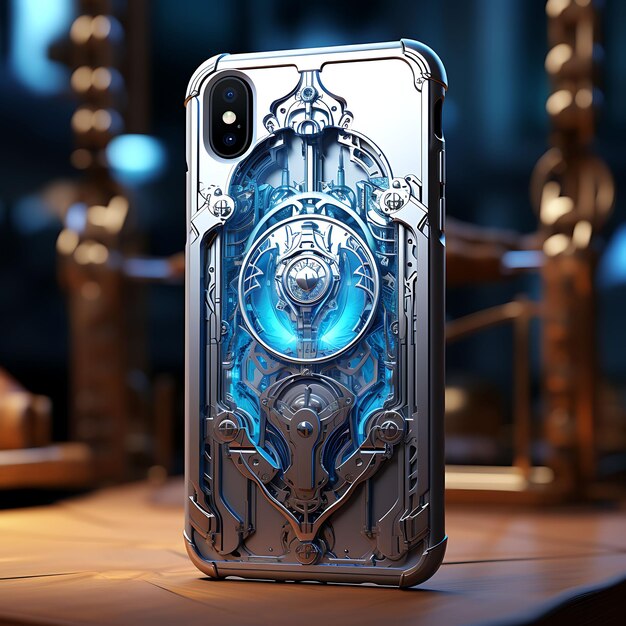
If you’re on the hunt for a luxury electric vehicle, you’re in luck because there are plenty of options to choose from, especially compared to those looking for budget-friendly alternatives. While new companies like Lucid are making waves, established brands like BMW and Mercedes-Benz have been building top-notch electric cars for a while now. Great examples of their luxury offerings are the Mercedes-Benz EQS SUV and the BMW i7.
Both of these models represent the pinnacle of luxury in their respective lineups, complete with advanced technology, beautiful interior designs, and more. But which one is a better fit for you? Let’s dive in and take a closer look.
The Mercedes-Benz EQS SUV maintains the same design language as many of Mercedes’ recent electric vehicles. It features a somewhat rounded nose that mirrors the standard EQS, though this is a design choice that not everyone loves. The rest of the car is attractive, standing taller than the standard EQS, and features a light bar at the rear for its brake lights.
On the other hand, the BMW i7 is more of a sedan and not as tall as the EQS SUV. BMW has experimented with its front-end designs, and the i7 has a large, faux grille that hasn’t been universally well-received. Nevertheless, the rest of the car has a sleek, boxy look that many might find stylish.
When it comes to design, it really boils down to personal preference. So, in this aspect, it’s a tie.
Winner: Tie
Now let’s explore the interiors. The Mercedes EQS SUV offers an impressive setup with three large displays at the front, including a 12.3-inch screen for the passenger to stream videos. The interior is adorned with accent lighting and premium materials, giving it an excellent look and feel. It supports CarPlay and Android Auto, along with features like heated and cooled front seats equipped with massagers.
However, the BMW i7 might take the cake, especially for back-seat passengers. It features a massive 31-inch screen that can drop down from the car’s ceiling, along with additional displays in the rear seat armrests to control shades, climate, and more. The front of the i7 might not be as dazzling as the EQS SUV’s, but it does include a large infotainment screen compatible with CarPlay and Android Auto.
The BMW i7 has some fantastic features for passengers, but for drivers, the EQS SUV might be more appealing. This one’s a tie too.
Winner: Tie
Performance-wise, the EQS SUV is available in several versions: the EQS 450+ SUV, the EQS 450 4Matic SUV, and the EQS 580 4Matic SUV. The base model, EQS 450+ SUV, delivers 355 horsepower and can go from 0 to 60 mph in 6.5 seconds. The top variant offers 536 horsepower and reaches 60 mph in 4.5 seconds.
Similarly, the BMW i7 comes in different variants. The base i7 eDrive50 boasts 449 horsepower, while the top-tier i7 M70 ramps up to 650 horsepower, achieving 0 to 60 mph in a quick 3.5 seconds. When it comes to raw performance, the BMW i7 is the clear winner.
Winner: BMW i7
Regarding range, the Mercedes EQS 450+ SUV can go up to 305 miles on a single charge, the highest in its lineup. The two other models offer an estimated range of 285 miles. It charges at 207kW, quick but not the fastest, especially compared to some less expensive electric cars like the Kia EV6, which charges at 350kW.
The BMW i7 is pretty much on par with its range. The base model, eDrive50, offers between 301 and 321 miles of range, depending on options like tires. The lowest-range model, the i7 M70, has a range between 274 and 291 miles. It charges at 195kW, similar enough to the EQS SUV that you wouldn’t notice much difference in real-world conditions.
Winner: Tie
Both the BMW i7 and Mercedes EQS SUV are currently available for purchase. The base price for the EQS 450+ SUV starts at $104,400, with higher-end models like the EQS 580 4Matic SUV starting at $125,950.
The BMW i7 has a starting price of $105,700, while the top-tier i7 M70 will cost you $168,500. Given that their base prices are fairly close, this category is also a tie.
Winner: Tie
In summary, the BMW i7 and the Mercedes EQS SUV share many similarities. They offer similar ranges, charging speeds, and start at comparable prices. Each vehicle has its unique design—where the EQS SUV is more practical and spacious, the BMW i7 leans into luxury with some impressive over-the-top features.
What sets the BMW i7 apart, however, is its superior performance. It is faster than the EQS SUV, and while the Mercedes is no slouch, the i7’s speed makes it a better option if performance is your priority.